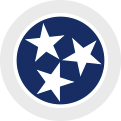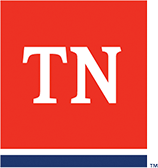Reopening Tennessee Arts & Culture

From Suzanne Lynch, Director of Marketing and Development –
As Tennessee Arts & Cultural organizations begin to plan for reopening, the Tennessee Arts Commission is collecting information from organizations on new protocols and procedures as well as sharing articles and resources. Our goal is to help organizations by providing insights and research that can be used to successfully open doors and restart the creative economy.
Tennessee’s Economic Recovery Group released guidance for close contact services on April 30, enabling over 38,000 workers to resume business in 89 of the state’s 95 counties on May 6. Six counties – Shelby, Madison, Davidson, Hamilton, Knox, and Sullivan – have created individual plans in consultation with their locally-run health departments (see below for details).
Organizations that we heard from are planning to implement new cleaning protocols, wear face masks and gloves, establish hand sanitizing stations, install protective plexiglass guards, limiting occupancy, and directing flow through exhibitions.
The arts benefit from having creativity at its disposal. Tennessee arts organizations are finding innovative solutions to reopening, including:
- Creative Aging Memphis is currently offering Senior Studio classes by Zoom but is planning outdoor concerts for seniors when Memphis permits it, estimated around May 10. Initially, performances will be outside with participants enjoying music from their balcony or through a window.
- The Dixie Carter Performing Arts and Academic Enrichment Center, Huntingdon is hoping to have some summer camps, conducting classes outside as much as possible and limiting class sizes to less than ten.
- The Center for the Arts, Murfreesboro has moved its youth education program to an online format. Weekly classes are available for ages 5-18 in visual and performing arts with teaching artists. They have also been holding workshops and programming through Facebook Live and are exploring options for streaming performances. Rehearsals are currently being held virtually through Zoom meetings and auditions are being held through video submissions.
- Levitt Shell, Memphis is also using Facebook Live to launch a series called the “Orion Virtual Concert Series,” which are archival concerts and are broadcast on Friday nights. Beginning June 6, Levitt Shell will host “ShellStream” on Saturday evenings that are live, full-length concerts. They have seen a real interest in their virtual programming and plan to continue as a way to keep the public engaged even after it’s safe to return to live music.
- Arrowmont School of Arts and Crafts, Sevierville has canceled workshops and events through August. Later this month, they will be launching “Arrowmont Connections,” which showcases the work of artists and “Craft Conversations” this month that includes lessons and demonstrations by artists.
- The Frist Museum of Art, Nashville will open by limiting the number of people allowed in each area. The cafe, store, and interactive children’s center, Martin ArtQuest will remain closed.
- The W.O Smith Music School, Nashville offers services online and currently has 170 students involved in virtual lessons and classes.
- Roxy Production, Inc., Clarksville, has moved its merchandise online and is exploring other electronic giving options. All artists will be tested before resuming rehearsals and performances.
If your organization is exploring creative new strategies, please share with us.
Resources
- The Oklahoma Arts Council has published “Considerations for Oklahoma Nonprofit Arts Organizations,” a helpful guideline for arts organizations that include considerations for arts programming and workplace safety.
- A blog post by Kiran Singh Sirah, President of the National Storytelling Center talks about collaboration in crisis.
Media Articles
- Quarantined actors, empty seats, temperature checks: Planning for a socially distanced — and pricey — return to live performances, Washington Post
- People Need Art in Times of Crisis. That’s Why Museums Should Be Among the First Institutions to Reopen for Business—Here’s How, ArtNet
- Museums Need to Be ‘the Openers of Doors, National Review
- Following Coronavirus Closures, Museums in Germany, Austria Plan Reopenings, Art News
- Many Dallas Cultural Venues Delay Reopening Despite Governor’s Permission, DM Magazine
- Belgian and Italian Museums Set Reopening Dates for Mid-May, ArtForum
- Cultural institutions in East Asia started reopening as the spread of COVID-19 slowed, Artsy
- Many Museums Won’t Survive the Virus. How Do You Close One Down? New York Times
- The Prado Museum Is Expecting to Lose 70 Percent of Its Income as It Prepares to Reopen With Limited Capacity, ArtNet
- Save Our Stages: More than a dozen local music venues join national coalition’s cry for help, WKRN
The full guideline from Tennessee’s Economic Recovery Group are posted online at TNPledge.com and include:
Business Process Adaptations
- Limit the number of customers to 50% of fire code capacity and practice strict social distancing between customers
- Services will be offered by appointment only; no walk-ins
- Make appropriate physical modifications to accommodate social distancing. Workstations should be at least 6 feet apart, with additional measures taken as necessary to ensure that all people stay 6 feet apart at all times except for the staff providing a service to their client; physical barriers to be used where necessary
- Prohibit use of waiting areas (e.g., could adopt such practices as notifying customers by call or text message) or serenity lounges; limit use of other common areas by multiple people at one time (e.g., elevators, breakrooms, etc.)
- Ensure thorough workstation and equipment disinfection after each customer (i.e. sanitize all equipment, instruments, capes, smocks, linens, chairs and work area); alternatively, utilize single-use or disposable items
- Implement enhanced sanitization of commonly touched surfaces and equipment (i.e., at least every two hours and when visibly soiled), using CDC recommended sanitizers and disinfecting protocols
- Discard any single-use tools (e.g., files, buffers, neck strips) immediately after use
- Daily deep cleaning and sanitization to be completed for high-touch areas (tanning beds, massage tables, salon chairs, etc.)
- Use appropriate temperatures for washers and dryers to ensure thorough sanitization of towels, linens, etc.
- Do not allow non-customer companions to accompany customer during a service
- Do not allow group or communal settings for close contact personal services (e.g., couples’ massages, salt rooms, saunas, pools)
Consumer Protection
- Services that require removing face coverings (e.g., beard shaving/trimming, facials, etc.) are not permitted in Phase 1
- Do not offer any self-serve food or beverages. Temporarily close water fountains. Encourage users to provide their own water
- Prohibit congregating in break rooms, check-in counters
- Customers should wear a cloth face covering at all times while in the premises (not N-95 or medical masks, which should be reserved for healthcare workers) and as recommended by the CDC and executive order of the governor. Use other personal protection items as recommended by the CDC
- For massage, prone positions could be uncomfortable or dangerous for clients who are wearing face coverings. Accordingly, massage professionals may consider other appropriate precautions such as draping a client’s head and face cradle cover with a thin cotton pillowcase. Otherwise, a face covering should be worn during portions of treatment in which the client is not prone or facedown
- Screen customers for illness upon their entry into the premises
Employee Protection
- Screen and temperature-check all employees reporting to work for COVID-19 symptoms
- Employees should increase hygiene practices—wash hands more frequently, avoid touching face, practice good respiratory etiquette when coughing or sneezing. Change any protective garments on a regular basis and sanitize reusable garments such as aprons or smocks at least once per day.
- Employees should wear a cloth face covering (not N-95 or medical masks, which should be reserved for healthcare workers) and other personal protection items as recommended by the CDC; if masks become wet or visibly dirty, the mask should be replaced
- All employees should wash hands between serving each customer, and more frequently as necessary. If appropriate for the service provided, gloves are recommended and should be discarded after each customer. The use of gloves should not be considered a replacement for frequent handwashing
- Perform regular disinfection of high-touch surface areas (e.g., door handles, counter space, light switches, tools and instruments) at least every two hours and when visibly dirty

